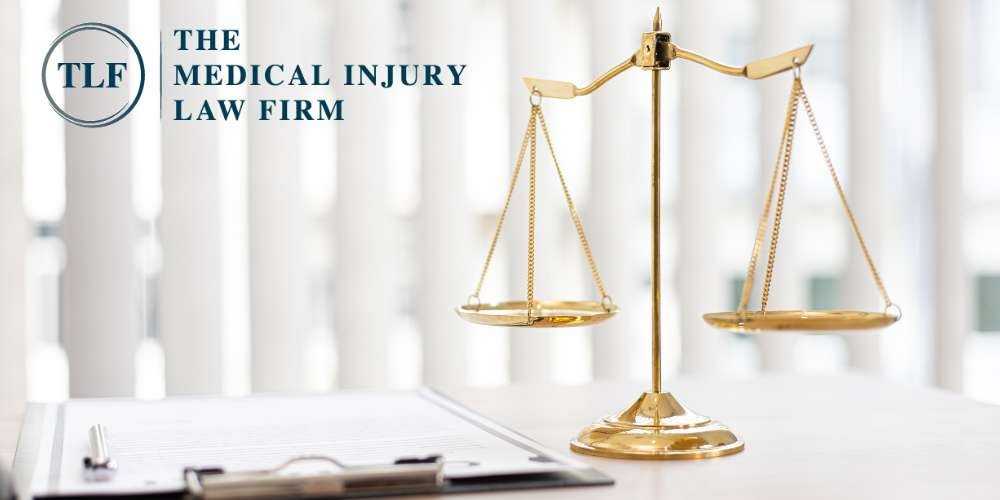Strict liability is an important legal principle that plays a critical role in safeguarding consumers, especially in Cincinnati. This doctrine holds manufacturers and distributors accountable for any injuries resulting from defective products, regardless of whether they were negligent or at fault. It guarantees that the responsibility for safety lies with those who design, manufacture, and market products rather than with consumers who may not have adequate expertise to assess product risks.
For Cincinnati residents, understanding how strict liability applies can be pivotal in ensuring they receive fair treatment and compensation following an injury caused by a defective product. Seeking legal assistance for injury victims in Cincinnati can provide the necessary guidance and support to navigate these complex legal waters, helping to uphold consumer rights and secure justice.
Managing the Claims Process Under Strict Liability
When it comes to filing a claim under strict liability statutes in Cincinnati, the process is consumer-friendly and streamlined to support the protection of consumers. This is especially important in cases where defective products have injured victims. The good news is that victims are only required to demonstrate that the injury occurred and was a direct result of the product’s defect.
Consumers who have been injured due to a defective product should keep a detailed record of the incident and injury to build a strong case for a strict liability claim. This includes maintaining purchase records, taking photographs of the defective product, and seeking immediate medical attention. These steps serve as solid evidence that can help substantiate the claim and make it easier for all parties to assess the damages and determine appropriate compensation.
Filing a strict liability claim in Cincinnati is a streamlined process that significantly reduces the complexity and duration of legal proceedings, allowing victims to focus on their recovery while ensuring that justice is served. By taking the necessary steps to document the incident and injury, consumers can help ensure that they receive fair compensation for their injuries and that manufacturers are held accountable for producing defective products.
Preventative Measures Enforced by Strict Liability
Strict liability laws incentivize companies to prioritize consumer safety by imposing legal consequences for product failures. These laws encourage manufacturers to invest in higher standards of product development, rigorous testing, and effective quality control. The aim is to catch potentially harmful defects long before the products reach the market, thereby reducing consumer risk.
Moreover, companies often enhance their consumer education efforts about product use and maintenance to prevent improper use that could lead to accidents. This helps minimize legal liabilities and promotes a safer usage environment, fostering a culture of safety and awareness among consumers and manufacturers alike. By prioritizing consumer safety, companies can build trust and confidence in their brand, leading to increased customer loyalty and a positive reputation in the marketplace.
Economic Impacts of Strict Liability on Businesses
Strict liability has significant financial implications for businesses, particularly in sectors heavily involved in manufacturing and distribution. While it promotes safety and consumer trust, the potential for liability can lead to increased costs associated with insurance, product testing, and compliance measures. These costs can influence pricing strategies and, ultimately, market competition.
However, adopting stringent safety measures and quality checks can lead to reduced incidence of liability claims, which can offset these initial costs over time. Businesses that consistently produce safe, reliable products can build a strong reputation, an invaluable asset in any market. This reputational benefit can translate into higher consumer trust and increased sales, providing a competitive edge.
The Psychological Comfort of Strict Liability for Consumers
Strict liability provides a layer of psychological comfort for consumers, knowing they are protected against the risks associated with defective products. This legal assurance makes consumers more confident in their purchases, especially when buying high-stake items such as electronics, vehicles, or pharmaceuticals. The trust established by strict liability laws can enhance consumer loyalty and satisfaction.
This sense of security is crucial in fostering a healthy relationship between businesses and consumers. When people feel safe and supported by laws, they are more likely to invest in products without fear of unchecked risks. This dynamic supports economic activity and promotes innovation as companies are pushed to develop safer and more advanced products.
Challenges in Proving Product Defects
Proving a product defect under strict liability can be complex despite the simplified legal framework. Here are the key challenges and requirements:
- Proving the Existence of a Defect: Plaintiffs must demonstrate that the defect was present when the product left the manufacturer, which often requires detailed analysis and evidence.
- Linking the Defect to the Injury: It must be shown that the defect directly caused the injury. This connection is crucial and must be clearly established to uphold a claim.
- Requirement for Expert Testimony: Many cases, especially those involving complex electronics or mechanical systems, require the insights of experts who can testify about the nature of the defect and its implications.
- Sophisticated Analysis: Analyzing the defect often involves sophisticated techniques and methodologies, particularly for complex products, to prove that the defect was not the result of alterations or misuse after purchase.
- Resource-Intensive Evidence Gathering: Collecting and preparing the necessary evidence to prove a defect can be time-consuming and expensive. It requires meticulous planning and execution.
- Legal Expertise: Legal professionals specialized in product liability are crucial for effectively navigating these challenges. They ensure that the evidence is compelling and appropriately presented in court.
Community and Legal Support in Cincinnati
Cincinnati’s commitment to consumer protection is evident in its community and legal support structures. Various organizations and legal clinics offer resources and guidance to help residents understand their rights under strict liability laws. These resources are invaluable for individuals who may feel overwhelmed by the legal implications of filing a claim.
Additionally, workshops and seminars are often available to educate consumers on their rights and how to protect themselves from defective products proactively. These community initiatives are crucial in building an informed public that can confidently navigate the market, knowing their rights are protected.



